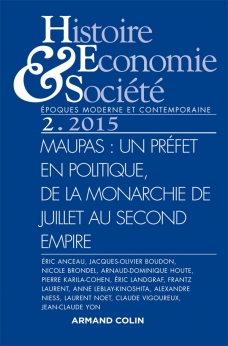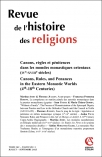
Histoire, économie et société (2/2015)
Pour acheter ce numéro, contactez-nous
Recevez les numéros de l'année en cours et accédez à l'intégralité des articles en ligne.
La résurrection du ministère de la Police générale (1852-53) illustre la tentation policière du Second Empire. En confiant cette institution au préfet de police du coup d’État, Maupas, Louis-Napoléon Bonaparte veut renforcer le contrôle des populations et la surveillance des opinions. Mais les archives privées de Maupas montrent la fragilité d’un ministère au périmètre mal défini et au personnel inadapté, qui se heurte, de plus, à de fortes résistances et à des rivalités administratives. L’échec de cette tentative témoigne plus fondamentalement des transformations de la police, qui connaît à cette époque de profonds changements de nature.
The rebirth of the Ministry of Police générale, between 1852 and 1853, could be a good example of the security policy of the Second Empire. By giving this function to Maupas, who was chief of the Parisian Police during the « coup d’État », Louis-Napoléon Bonaparte wants indeed to strengthen the surveillance of the country. Yet, the private archives of Maupas reveal the weakness of that new Ministry, unable to direct the police and attacked by other administrations. As we try to show in this article, the failure of Maupas can also be explained by the deep changes of the police.

